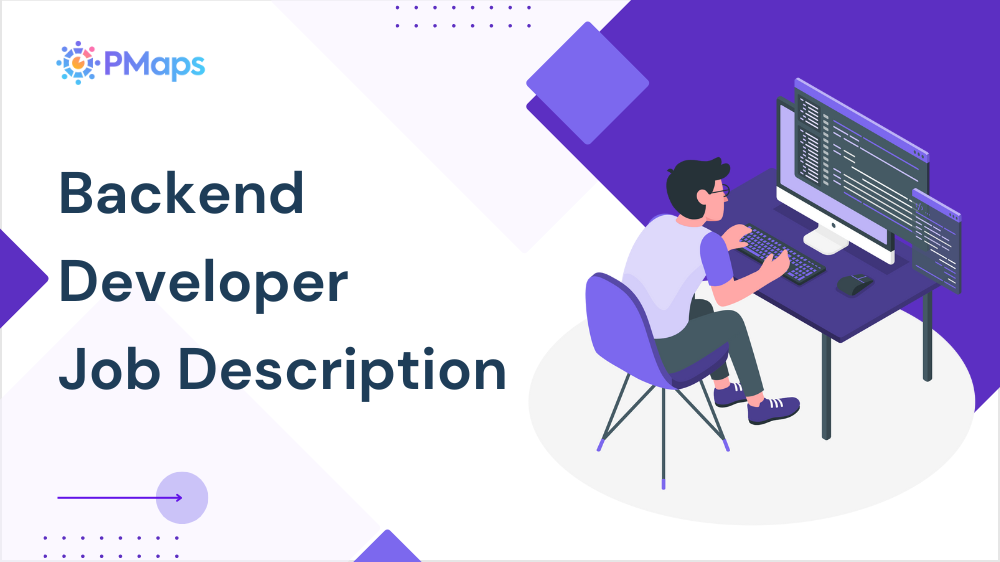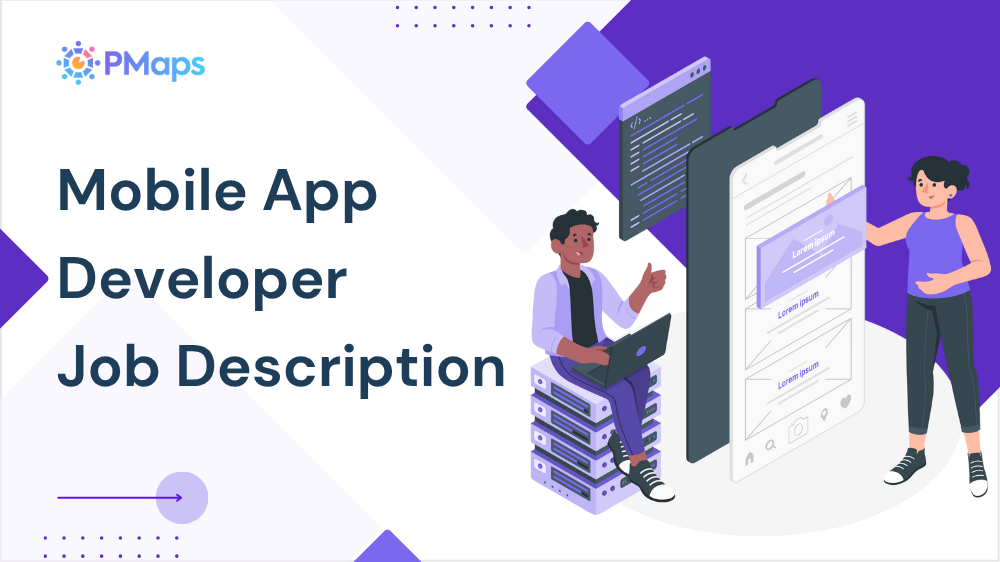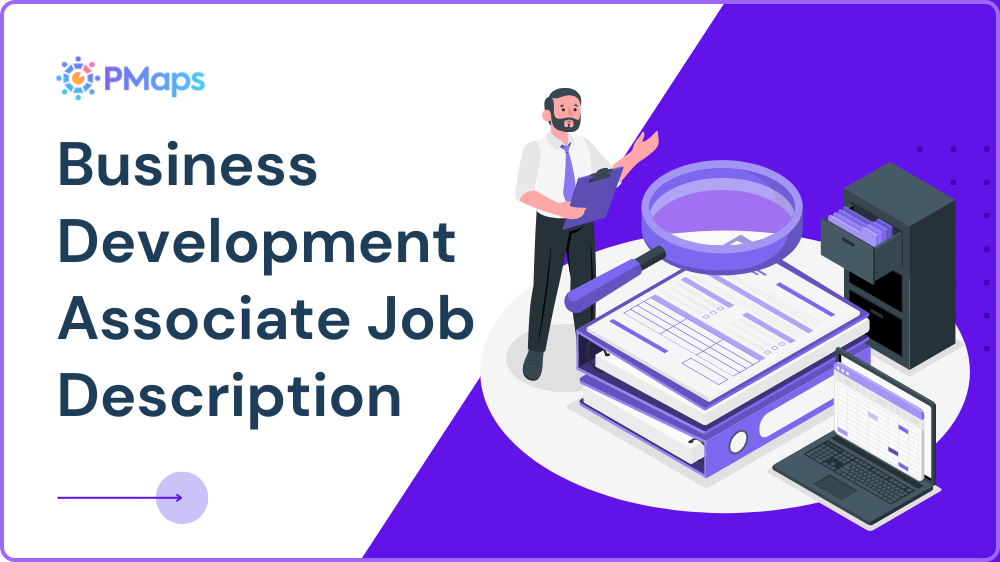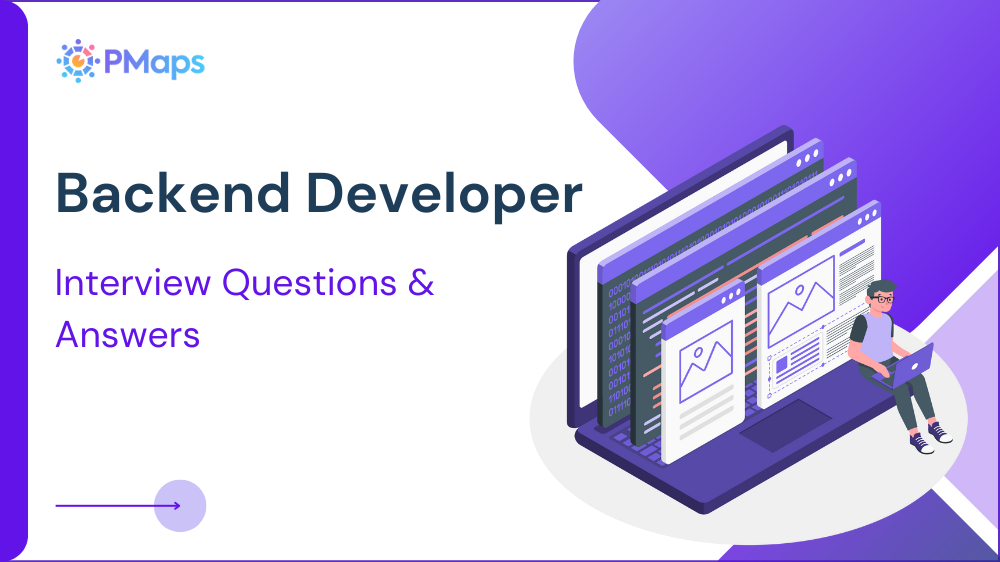.png)
The role of a Front-End Developer is pivotal in creating seamless and engaging user interfaces that directly impact how users interact with digital platforms. With expertise in HTML, CSS, JavaScript, and modern frameworks like React, Angular, and Vue.js, Front-End Developers bring designs to life and make them functional and accessible.
One final validation? Run the Front End Developer Assessment.

However, finding the right Front-End Developer requires more than just reviewing resumes. You need to assess technical proficiency, problem-solving skills, and creativity. Asking the right questions during interviews ensures you identify candidates who not only know how to write code but also how to create intuitive and performant user experiences.
This guide provides 25 curated front-end developer interview questions and answers to help you evaluate technical expertise, UI/UX knowledge, and ability to collaborate with design and back-end teams effectively.
Check the Front End Developer Job Description again before you decide.
General Interview Questions for Front-End Developers
These questions will help assess a candidate’s technical expertise, problem-solving approach, and how well they understand front-end development concepts. Pay attention to their depth of knowledge, practical examples, and the clarity with which they explain their process.
1. Can you describe your experience with HTML, CSS, and JavaScript?
What it Assesses:
This question evaluates their proficiency with core front-end technologies and their ability to build responsive, interactive web pages.
What to Listen For:
Look for familiarity with HTML5, CSS3, JavaScript ES6+, and mention of any libraries or frameworks they have used. They should be able to explain how these technologies work together to create a web page.
Sample Ideal Answer:
"I have extensive experience with HTML5 for structuring web pages, CSS3 for responsive design using Flexbox and Grid, and JavaScript for interactivity. I’ve used React extensively for building dynamic, responsive UIs and ensuring smooth user interactions."
2. What front-end frameworks are you most comfortable with?
What it Assesses:
This question tests their experience with modern frameworks that help build complex, scalable web applications efficiently.
What to Listen For:
Candidates should mention specific frameworks like React, Angular, or Vue.js. They should describe their practical experience, including when and why they used those frameworks.
Sample Ideal Answer:
"I’m most comfortable with React, which I’ve used for building scalable single-page applications. I’m also familiar with Angular for larger enterprise projects and have worked with Vue.js for smaller, performance-critical applications."
3. How do you ensure your code is optimized for performance?
What it Assesses:
This question gauges the candidate’s understanding of performance optimization techniques, crucial for ensuring fast and responsive websites.
What to Listen For:
Look for mentions of specific optimization techniques like lazy loading, code splitting, minification, image optimization, and reducing the number of HTTP requests.
Sample Ideal Answer:
"I optimize performance by using lazy loading for images and non-critical JavaScript, minifying CSS and JavaScript files, and implementing code-splitting in React. I also optimize images and leverage browser caching to reduce load times."
4. Can you walk me through your approach to responsive web design?
What it Assesses:
This evaluates their understanding of creating adaptable websites that work seamlessly on various screen sizes and devices.
What to Listen For:
Candidates should explain their approach to mobile-first design, use of CSS media queries, flexible grids, and testing across devices to ensure responsiveness.
Sample Ideal Answer:
"I use a mobile-first approach, starting with a base layout for small screens and gradually adding breakpoints with CSS media queries for larger devices. I also leverage CSS Grid and Flexbox for flexible, responsive layouts."
5. What is your experience with version control systems like Git?
What it Assesses:
This question checks if they can effectively use version control for managing code changes and collaborating with other developers.
What to Listen For:
The candidate should be comfortable with Git commands, branching, merging, resolving conflicts, and using Git platforms like GitHub or GitLab for collaboration.
Sample Ideal Answer:
"I’ve been using Git for version control throughout my career. I’m comfortable with branching and merging, resolving conflicts, and using GitHub for code reviews, pull requests, and tracking issues with my team."
Behavioral Interview Questions for Front-End Developers
Behavioral questions help uncover how a candidate performs under pressure, collaborates with others, and approaches challenges that go beyond coding. Pay attention to how they describe real-world situations, their decision-making process, and their problem-solving capabilities.
1. Tell me about a time you had to fix a performance issue in an existing project. How did you approach it?
What it Assesses:
Problem-solving and troubleshooting under real-world conditions.
What to Listen For:
Look for structured problem identification, use of performance tools like Lighthouse or Chrome DevTools, and the techniques used to resolve the issue (e.g., optimizing assets, refactoring code).
Sample Ideal Answer:
"In a recent project, the site’s load time was over 5 seconds. I used Chrome DevTools to identify large unoptimized images and excessive JavaScript. I compressed images, implemented lazy loading, and split the code to improve performance, reducing load time to under 2 seconds."
2. Can you describe a situation where you had to collaborate with designers to implement UI/UX changes?
What it Assesses:
Collaboration with cross-functional teams, particularly UI/UX alignment.
What to Listen For:
Look for clear communication with designers, how they handled feedback, and their approach to translating design mockups into code without compromising usability or functionality.
Sample Ideal Answer:
"I worked closely with the design team to implement a new dashboard interface. I ensured that their vision was carried through by translating their designs into responsive HTML/CSS, using React to handle dynamic elements. We iterated on the design based on feedback from both stakeholders and users."
3. Tell me about a time when you had to meet a tight deadline for a feature or project. How did you manage your time?
What it Assesses:
Time management, prioritization, and meeting deadlines under pressure.
What to Listen For:
Candidates should show a clear, structured approach to managing time, such as breaking tasks into smaller chunks, focusing on high-priority features, and managing expectations with stakeholders.
Sample Ideal Answer:
"I was given a tight deadline to implement a new feature for a product launch. I prioritized the critical path items first, broke the work into smaller tasks, and communicated regularly with the team to manage expectations. I also set aside time for testing and final review to ensure quality."
4. Have you ever faced a situation where you disagreed with a teammate on how to approach a technical issue? How did you resolve it?
What it Assesses:
Conflict resolution, communication, and collaboration skills.
What to Listen For:
Look for candidates who can describe a respectful and logical discussion, focusing on the issue at hand rather than personal differences. The resolution should reflect compromise, data-backed arguments, or a collaborative decision.
Sample Ideal Answer:
"A teammate and I disagreed on whether to use a CSS framework for a project. I suggested using Flexbox instead to keep the code lightweight. We discussed the pros and cons and came to an agreement after testing both approaches, ultimately going with Flexbox for better performance."
5. Describe a time when you had to implement a new technology or tool. How did you get up to speed with it?
What it Assesses:
Adaptability and willingness to learn new tools or technologies.
What to Listen For:
Look for examples of independent learning (e.g., tutorials, documentation), collaboration (e.g., asking for guidance from more experienced team members), and their process for integrating new technology into their workflow.
Sample Ideal Answer:
"When we decided to integrate React into our project, I spent a weekend going through the official React documentation and followed a few tutorials. I also paired with a senior developer to get familiar with the component-based structure and improve my workflow before fully integrating it into the project."
Situational Interview Questions for Front-End Developers
Situational questions assess how candidates think on their feet, handle real-world challenges, and make decisions in ambiguous or high-pressure situations. These questions are designed to uncover a candidate’s ability to adapt to changing requirements, prioritize tasks, and resolve conflicts effectively.
1. If a user reports a bug where a feature is not functioning correctly in their browser, how would you approach troubleshooting it?
What it Assesses:
Problem-solving, debugging, and user empathy.
What to Listen For:
Look for a methodical approach—using browser developer tools, checking cross-browser compatibility, testing in different environments, and reproducing the issue. An understanding of tools like Chrome DevTools or cross-browser testing platforms is key.
Sample Ideal Answer:
"I would first attempt to replicate the bug by testing the feature in different browsers and devices. I’d then use Chrome DevTools to inspect the console for errors, check the network tab for issues, and investigate CSS compatibility for any browser-specific styles."
2. How would you handle a situation where a stakeholder requests a feature that you know would negatively impact the performance of the application?
What it Assesses:
Communication skills, prioritization, and the ability to balance technical debt with business requirements.
What to Listen For:
Look for the candidate to communicate the issue clearly to the stakeholder, backed by data or evidence (such as performance metrics), and suggest alternatives that meet the business need without compromising performance.
Sample Ideal Answer:
"I would first explain the potential impact on performance with metrics from tools like Lighthouse or WebPageTest. I’d then offer an alternative solution that achieves the business goal while maintaining the application’s performance, possibly breaking the feature into smaller, more manageable components."
3. If you are tasked with implementing a feature but realize the design does not align with the user experience expectations, how do you handle it?
What it Assesses:
UI/UX knowledge, collaboration, and proactive problem-solving.
What to Listen For:
The candidate should mention communicating with the design team, gathering feedback, and proposing changes that align better with user experience principles, like usability testing or alternative designs.
Sample Ideal Answer:
"I would review the design with the UX/UI team, identifying areas where it could be optimized for usability. If necessary, I’d provide feedback with specific suggestions based on user testing data, ensuring the design still meets functional requirements while enhancing the user experience."
4. You are given a project with multiple components and a tight deadline. How do you manage your tasks and priorities?
What it Assesses:
Time management, task prioritization, and working under pressure.
What to Listen For:
Candidates should discuss breaking the project into smaller tasks, prioritizing critical components, and managing expectations with stakeholders. They should show an understanding of Agile methodologies or a similar approach to handle project timelines.
Sample Ideal Answer:
"I would break down the project into smaller, manageable tasks, prioritizing the most critical components that impact the user experience. I’d use tools like Jira to track progress, and communicate regularly with the team to adjust timelines if necessary."
5. How would you handle a situation where a feature you developed is not meeting expectations after deployment?
What it Assesses:
Ownership, testing practices, and accountability.
What to Listen For:
Look for a response that demonstrates ownership of the issue, a structured approach to debugging, and proactive collaboration with relevant teams to identify and resolve the problem.
Sample Ideal Answer:
"I would review user feedback and issue reports to understand the scope of the problem. Then, I would conduct thorough testing to identify the cause, whether it’s a bug or a design issue. I’d work with the QA team and stakeholders to fix the issue quickly and deploy a patch."
Technical or Functional Interview Questions for Front-End Developers
Technical questions for Front-End Developers assess a candidate’s hands-on experience with coding, system integration, UI/UX design, and their understanding of front-end performance and optimization. These questions dive deeper into their skill set, problem-solving ability, and capacity to work with complex systems.
1. Can you explain the concept of the virtual DOM and how it works in React?
What it Assesses:
Understanding of modern front-end technologies, particularly React.
What to Listen For:
The candidate should explain that the virtual DOM is a lightweight copy of the actual DOM used to improve performance by minimizing direct updates to the real DOM. They should mention React’s reconciliation process and how it optimizes re-rendering.
Sample Ideal Answer:
"The virtual DOM is a virtual representation of the real DOM. React uses it to optimize rendering by first making changes to the virtual DOM and then comparing it to the real DOM. It then applies only the necessary changes to the actual DOM, reducing performance bottlenecks."
2. How do you manage state in a React application?
What it Assesses:
Understanding of state management in React.
What to Listen For:
Candidates should mention managing local component state using the useState hook for functional components or this.state in class components. They may also mention state management libraries like Redux or Context API for global state management.
Sample Ideal Answer:
"I manage local state using the useState hook for individual components. For more complex or global state management, I use Redux to maintain a centralized store. The Context API is also useful when I need to pass state deeply through the component tree."
3. What are some common performance bottlenecks in front-end development, and how do you resolve them?
What it Assesses:
Knowledge of performance optimization techniques.
What to Listen For:
Look for a detailed response with examples, such as minimizing HTTP requests, lazy loading images and JavaScript, reducing DOM manipulation, and optimizing render cycles in frameworks like React.
Sample Ideal Answer:
"Some common bottlenecks include large image sizes, blocking JavaScript, and excessive DOM manipulation. I resolve these by compressing images, using lazy loading for non-essential resources, and applying code-splitting techniques in React to reduce initial load time and improve responsiveness."
4. How do you ensure cross-browser compatibility when developing a website?
What it Assesses:
Knowledge of browser compatibility and testing tools.
What to Listen For:
Look for an answer that demonstrates an understanding of cross-browser compatibility issues. They should mention testing tools like BrowserStack, using CSS prefixes for legacy browsers, and checking for compatibility with modern web standards.
Sample Ideal Answer:
"I ensure cross-browser compatibility by using tools like BrowserStack to test my designs across different browsers. I also rely on CSS prefixes for older browser versions and avoid using features that aren’t widely supported. I prioritize progressive enhancement to ensure users on all browsers have a functional experience."
5. What is your process for writing unit tests for front-end components?
What it Assesses:
Knowledge of testing and quality assurance.
What to Listen For:
Candidates should mention testing frameworks like Jest or Mocha, and how they use them to write unit tests for components. They should also demonstrate knowledge of writing tests for edge cases and mocking dependencies.
Sample Ideal Answer:
"I use Jest for unit testing, focusing on testing individual components to ensure they behave as expected. I use React Testing Library to render components and test their interaction with the DOM. I also mock API calls and dependencies to test components in isolation."
Front-end Devs judge your JD like they judge UX—clean, clear, fast. Start here.
Pro Tips for Interviewing Front-End Developers
When interviewing Front-End Developers, it’s important to assess not only their technical skills but also their ability to collaborate, problem-solve, and communicate effectively. These pro tips will help you uncover the full range of a candidate’s abilities, ensuring they align with the demands of your team and projects.
User interface issues hurting experience? Learn how to hire a Front End Developer who writes clean, steady-performing code.
1. Use live coding challenges or whiteboarding exercises
Testing candidates with real-time coding challenges helps evaluate how they approach problem-solving under pressure. Live coding is a great way to see how candidates write clean, maintainable code, and whether they can think critically about edge cases.
2. Ask about their debugging process
A strong Front-End Developer should have a structured approach to debugging. Ask candidates how they identify, isolate, and resolve bugs. This will give you insight into their troubleshooting skills, and whether they rely on effective tools like Chrome DevTools.
3. Evaluate their familiarity with front-end performance tools
Performance optimization is critical for Front-End Developers. Ask candidates which tools they use for performance testing (e.g., Lighthouse, WebPageTest, or Chrome DevTools) and what strategies they apply to improve load times, rendering, and interactivity.
4. Assess their ability to integrate with back-end systems
Front-End Developers must work closely with back-end teams. Ask how they handle communication with APIs or back-end services. Look for experience with RESTful services, GraphQL, and their understanding of asynchronous programming (e.g., using async/await in JavaScript).
5. Use well crafted job description to guide your questions
Tailor your interview questions around the specific responsibilities outlined in the job description. Focus on key KPIs such as UI/UX implementation, responsive design, code quality, and performance optimization to ensure the candidate aligns with the role requirements.
Conclusion
Hiring a Front-End Developer isn't just about code—it's about solving problems, creating seamless user experiences, and collaborating effectively. With these 25 carefully curated front-end developer interview questions and answers, you can confidently evaluate technical expertise, UI/UX understanding, and problem-solving skills.
We’ve equipped you with the right tools to hire developers who can hit the ground running. Ready to see it in action? Take a free trial and demo of our assessment tools and ensure your interview process gets even more efficient.









